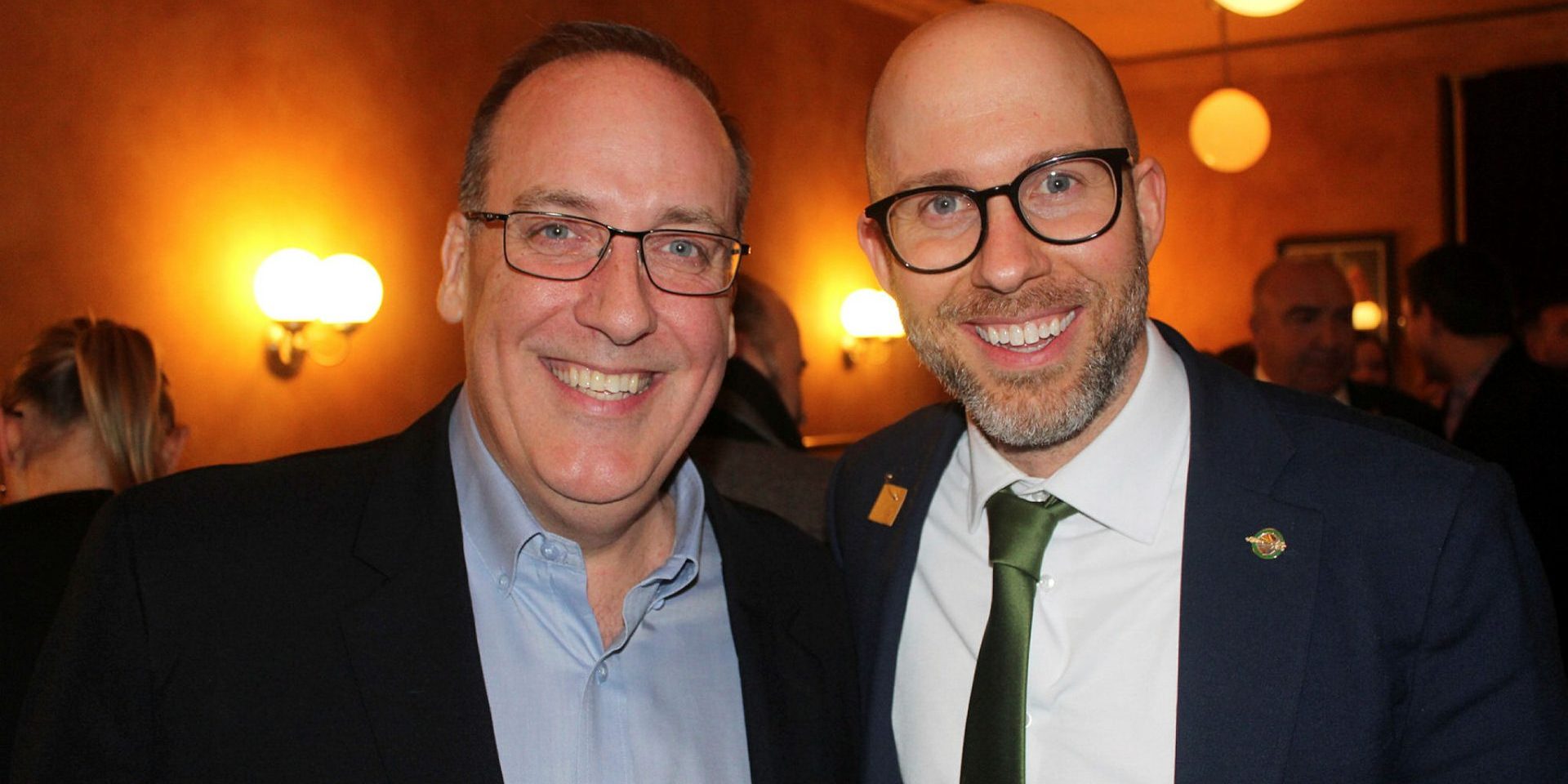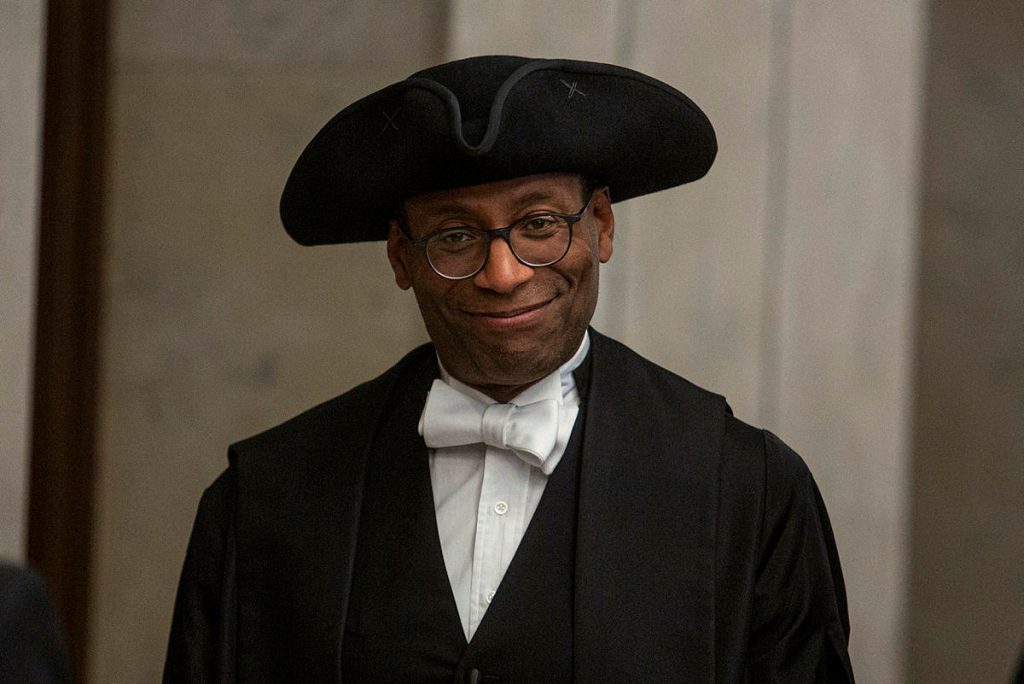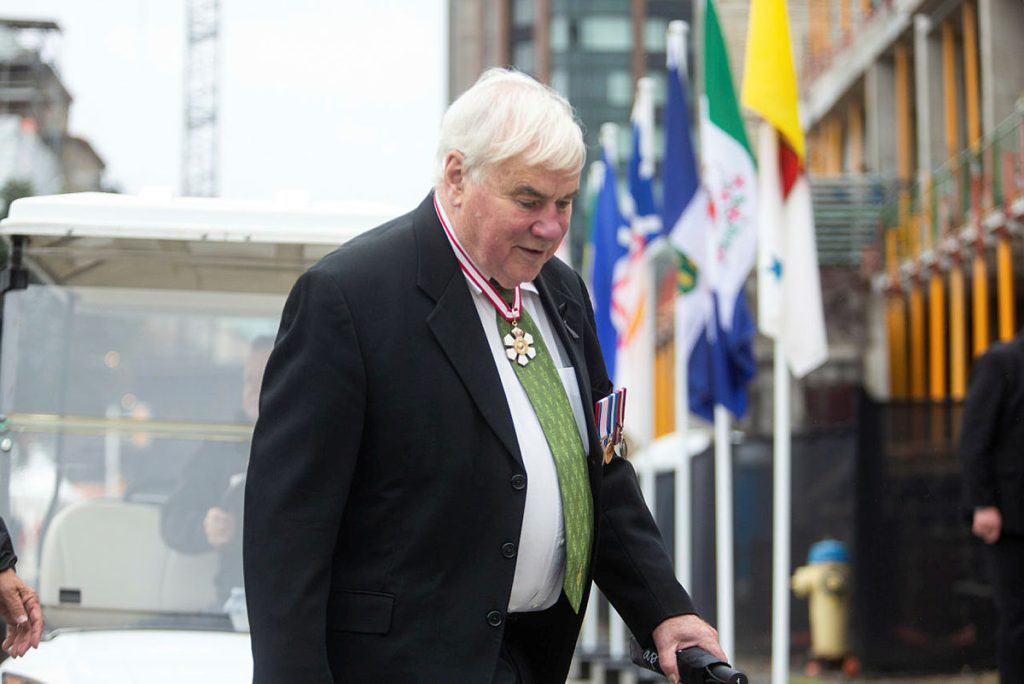Conservative MP d’Entremont officially launches campaign for House Speaker, unclear if Fergus will run again for top job

It remains unclear whether Speaker Greg Fergus will seek re-election to one of the most coveted positions on Parliament Hill, but a three-term Nova Scotia Conservative MP—who’s previously served as deputy speaker—is officially entering the race.
“Today, I’m reaching out to ask for your support as I put my name forward to serve as the next Speaker of the House of Commons,” wrote Chris d’Entremont (Acadie-Annapolis, N.S.), in an email to MPs of all parties on May 4, and obtained by The Hill Times. “As we begin this new Parliament shortly, the House of Commons will be engaged in important work and must be led with respect, fairness, and impartiality. I believe that steady, experienced, and impartial leadership is more important than ever.”
Fergus (Hull-Aylmer, Que.) was unavailable for an interview, and the House Speaker’s Office declined to comment on whether the four-term Liberal MP intends to seek the House’s top position.
In the April 28 federal election, the Liberals won 169 seats, the Conservatives 143, the Bloc Québécois 23, the NDP seven, and the Greens one. In the newly reconfigured 343-seat House of Commons, a party needs 172 seats to form a majority government. The governing Liberals are currently in a minority and are just three MPs short of a majority. If Fergus runs and is elected Speaker, he would only be able to vote in the event of a tie—potentially weakening the government’s position. This could become a factor in the Hull–Aylmer MP’s decision on whether to seek the role. The House is set to return on May 26, with electing a new Speaker as the first order of business.
Fergus was elected as House Speaker in October 2023 following then-speaker Anthony Rota’s resignation the month before and after inviting then-98-year-old Yaroslav Hunka, a constituent from his riding, to attend Ukrainian President Volodymyr Zelensky’s address to Parliament on Sept. 22, 2023. As Speaker, Rota introduced Hunka as both a Ukrainian and Canadian hero. It was later revealed that Hunka had served in a Nazi unit during the Second World War. The House had given him two standing ovations, unaware of his background. Rota faced intense criticism for the lack of vetting, publicly apologized twice, and stepped down as Speaker.

Meanwhile, in his letter to MPs, d’Entremont—who was first elected in 2019 and has served as deputy speaker since 2021—highlighted his record over the past four years: chairing debates on key issues, presiding over daily Question Periods, issuing rulings, making more procedural decisions than any of his predecessors, and helping maintain order and civility in the House.
“The House of Commons needs an experienced Speaker now more than ever—someone who has proven their dedication to this institution, who understands the demands of the role, and who can ensure our work proceeds with respect, order, and fairness,” wrote D’Entremont. “I believe I have demonstrated these qualities in my time in the Chair.”
D’Entremont cited former House Speaker Peter Milliken as his inspiration, noting that Milliken served through three consecutive minority Parliaments: 2004, 2006, and 2008. While the 2004 government was led by Liberal prime minister Paul Martin, the 2006 and 2008 governments were under Conservative prime minister Stephen Harper. Milliken was a Liberal MP.
“He was respected by all his peers across party lines as he tirelessly defended the principles of accountability, transparency, and the proper functioning of parliamentary institutions,” wrote d’Entremont. “Like him, I have always been—and will continue to be—committed to parliamentary democracy and the role of the House, to the importance of parliamentary privilege, and to the separation of power.”
In the letter, d’Entremont emphasized the importance of parliamentary privilege and the separation of powers, referencing a ruling by Milliken that underscored the need to maintain a balance between executive and legislative authority to “preserve the integrity of Canadian parliamentary democracy.”
D’Entremont said that in this minority Parliament—elected by Canadians amid turbulent economic times—MPs of all parties are expected to collaborate, uphold civility, and focus on delivering results, highlighting the crucial role of the Speaker. With a minority government in place, he added, it’s the responsibility of all MPs to ensure the House functions effectively and cooperatively.
“Having served as Deputy Speaker, I bring a proven record of equity, respect for our democratic institution, and a calm, consistent approach to even the most challenging moments,” wrote d’Entremont. “I am committed to continuing this same dedication, in order to also bring the benefit of my experience to the Speaker’s Chair.”
In an interview with The Hill Times on May 5, d’Entremont said he had received a positive response from colleagues across party lines since last Sunday when he sent out his email. He planned to make his case why he’s the best candidate to be the House Speaker to his caucus on May 6. D’Entremont said that it’s important to have a strong House Speaker in a minority government, saying that the Speaker may be required to cast tie-breaking votes.

“I’ve shown over time to be a very, very non-partisan person,” said d’Entremont. “Many of the people that have had a chance to work with me know that. Coming from an Acadian background in southern Nova Scotia, we’re a very easy going person, and we don’t get too caught up in the stress of it all, and we always try to find, I would say the balance between giving and taking.”
The election of the House Speaker is conducted through a secret ranked ballot, and voting will take place in person in the Commons. Under this system, MPs will vote for all candidates, ranking them from one to depending on how many candidates are running, in order of preference. If none of the candidates wins 50 per cent plus one of the votes after the first ballot, the ballots belonging to the candidate who ranked last are eliminated, and their votes will go to the remaining candidates. This process continues until one of the candidates receives the majority of the vote. MPs cast their vote only once, but ballots continue to be redistributed by dropping the last-place finisher until a clear winner emerges.
Thirteen-term Bloc Québécois MP Louis Plamondon (Bécancour-Nicolet-Saurel, Que.), the “dean” of the House, or the longest-serving current MP, will oversee the House Speaker’s election.
The Speaker is like the mayor of the House of Commons. In addition to the salary, the position comes with several perks, including an official residence in the Gatineau Hills known as The Farm or Kingsmere, a private apartment in the West Block, a chauffeur, and a $1.38-million office budget. The Speaker also travels abroad on inter-parliamentary missions, hosts receptions for diplomats and visiting heads of state, and regularly represents Canada on the international stage.
The House Speaker is the chair of the powerful House Board of Internal Economy Committee, and oversees the Commons’ annual budget of approximately $600-million. The House administration, procedure, legal services, security, and maintenance divisions all report to the House Speaker.
In the House, the Speaker chairs the parliamentary proceedings including the daily 45-minute Question Period when the Parliament is in session, interprets rules and traditions, manages procedure, maintains decorum, and is the custodian of MPs’ rights and privileges. The Speaker does not participate in the House debates, and votes only in case of a tie. House Speakers do not attend weekly national caucus meetings that take place on the Hill every Wednesday morning when the House is sitting.
The Hill Times






 LICENSING
LICENSING PODCAST
PODCAST ALERTS
ALERTS













